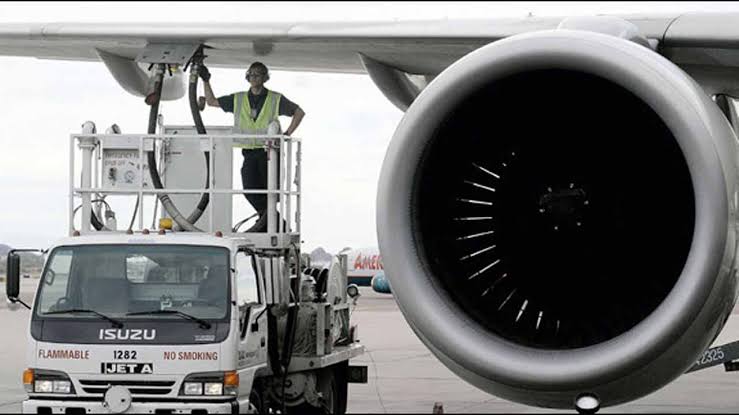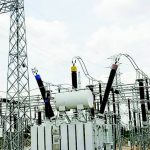Jet A1 now sells at N590 per litre in Lagos
There are indications that non-availability of aviation fuel (Jet A1) may lead to total collapse of domestic flights operations in Nigeria soon.
At the two busiest airports in Nigeria, Lagos and Abuja, aircraft scheduled for flight service on Tuesday were parked for hours waiting for fuel.
Passengers waited anxiously, hoping to hear an announcement for boarding, but none was announced for about four hours.
Later, at the General Aviation Terminal (GAT), Murtala Muhammed International Airport, Lagos, an airline announced the cancellation of a flight to Jos.
That was indicative that all the flights destined to airports where flights do not operate in the night, known as sunset airports, would be cancelled and passengers would become stranded.
Meanwhile, the price of aviation fuel has increased to N590 per litre in Lagos and is likely to cost more in Abuja, Kaduna and Kano.
“For perspective, just to inform you guys what’s happening. In January 2021, we bought aviation fuel at N190 per litre. At the end of the year, we were paying N360, almost double. At the end of February 2022, just over a week ago, it was between N415 and N440,” stated the Chief Operating Officer of Ibom Air, George Uriesi.
“Today, it is N579 per litre in Lagos, N599 in Abuja, N599 in Port Harcourt and N607 in Kano. And that’s even where you find it to buy.”
According to him, the airlines are almost grounded.
He added, “You cannot find the fuel, and where you find it, you have to decide if it’s worth paying for at these ridiculous rates. Needless to say, we are in a major crisis.”
Travel expert and consultant Ikechi Uko, who was waiting for a flight from Lagos to Abuja, told THISDAY that from 12:00 p.m. when he arrived at the airport until 4:00 p.m., there was no boarding of passengers to any destination from the GAT facility, and it was the same in the main domestic terminal, MMA2.
“Nobody is taking off. One airline has cancelled a flight to Jos. I spoke to an Air Peace official, and she said they were not cancelling flight. Green Africa is sending messages to its passengers,” explained Uko. “But every aircraft is still parked. No plane has left. Since 12:00 mid-day I came here, only one flight operated by Air Peace has left. In Abuja, I gathered that aircraft are parked at the tarmac, waiting.”
Later, Uko told THISDAY that some bowsers (fuel distribution vehicles) had driven to the tarmac.
“The delay I witnessed since I came to the airport was over four hours, and we are not sure when flights will begin to take off. Flights going to sunset airports will be cancelled because they cannot fly to those airports and come back,” Uko added.
Uko, the organiser of Akwaaba African Travel Market, noted that the high price of aviation fuel and other fuel products was due to Nigeria buying at the international market price with foreign exchange.
However, he pointed out that “Nigeria stands another great opportunity to enjoy a wonderful windfall from the sale of crude oil, which was budgeted for $70 per barrel but now it is going to $130 per barrel and still rising.”
He lamented that the subsidy regime would wipe off the gains.
Last week, Dana Air apologised to its passengers for flight disruptions on March 1, with most flights cancelled due to fuel scarcity.
The Deputy Chief Executive Officer of the airline, Sukhjinder Mann, explained that the disruptions were also due to ramp congestion and bad weather. He promised to give complimentary tickets to passengers affected.
“On fuel scarcity, we are working with our partners to significantly mitigate the challenge, and I am pleased to advise that we have made major inroads in this area with our key suppliers,” said Mann. “We will continue to do our best to minimise any foreseeable challenges while hoping that the situation improves generally for all carriers as soon as possible.”






